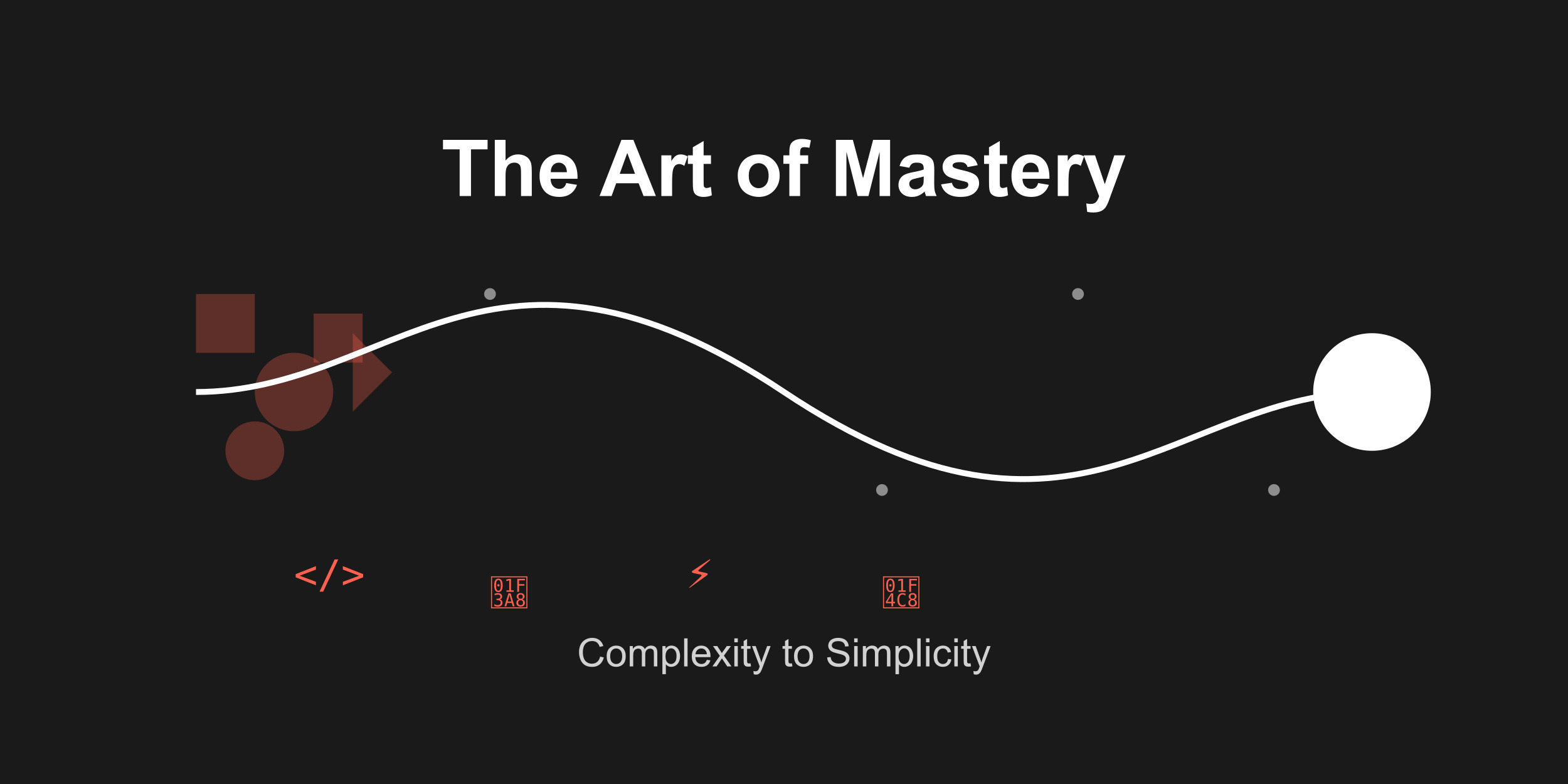When I first started writing, I’d look at seasoned writers’ work and think, “I can do that.” Their writing flowed so easily—no flashy words or overcomplicated sentences. But once I started writing myself, I quickly realised how deceiving that simplicity was.
True mastery is often hidden behind effortless execution. Whether it’s writing, design, or decision-making, the best in any field make their craft look easy. But beneath that polished exterior is usually years of practice, learning from mistakes, and refining their skills.
That smooth, simple piece of writing? It’s likely been edited and rewritten countless times. That clean, minimalist design? It took years of understanding balance and hierarchy to get there. The “easy” decision your favourite entrepreneur just made? It’s backed by hard-won lessons from past failures.
Mastery isn’t just about knowing your craft inside and out—it’s about making the complex feel simple. Early in your career, it’s easy to think that complexity equals skill. But as you grow, you realise that true expertise comes from simplifying, refining, and stripping away what’s unnecessary.
Think about your own work. Whether you’re writing, coding, managing, or problem-solving, the goal isn’t to complicate things but to make them clear and efficient. That kind of clarity doesn’t happen overnight; it’s the result of years spent honing your skills and learning from your experiences.
Striving for simplicity doesn’t mean skipping steps or dumbing things down. It’s about mastering the basics so well that they become second nature. And, more importantly, it’s about presenting your work in a way that’s clear, effective, and impactful to others.
How to achieve simplicity and mastery in your work
- Master the basics: Every expert was once a beginner. The reason they make things look easy is because they’ve spent years mastering the fundamentals. Whether you’re writing, designing, or leading a team, simplicity comes from a solid understanding of the core principles. Regularly revisit and sharpen your knowledge of the basics.
- Practice deliberately: Practice with intention. Break your tasks down and focus on improving each aspect individually. Think of it like sharpening a knife—focus on perfecting each edge until it’s razor-sharp. This way, over time, you get faster and better, and your work becomes more effective.
- Get feedback: You can’t always see your own blind spots. That’s why feedback is essential. Regularly ask peers, mentors, or managers for input on how you can simplify or improve your work. Fresh perspectives can help you identify areas where you can be more efficient and effective.
- Keep refining: Simplicity and mastery aren’t one-time achievements. As your work evolves, so should your approach. Continuously assess your workflows—are there unnecessary steps? Can you streamline the process? Regular iteration will bring you closer to “effortless” mastery.
- Teach others: Nothing tests your understanding like trying to explain something to someone else. Teaching forces you to break things down to their essentials, which will not only help others but also make you better at your craft.
The best people in any field don’t just do their job—they make it look easy. But that ease is the result of years of hard work, refinement, and mastery. When you can do something complex and make it appear simple—that’s when you know you’ve truly mastered it.
Get passive updates on African tech & startups
View and choose the stories to interact with on our WhatsApp Channel
Explore




